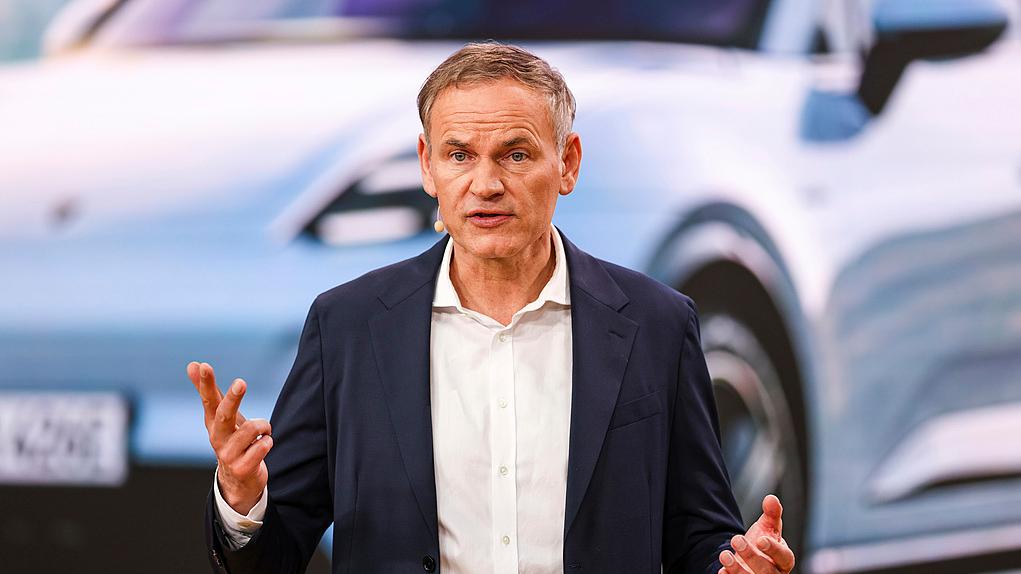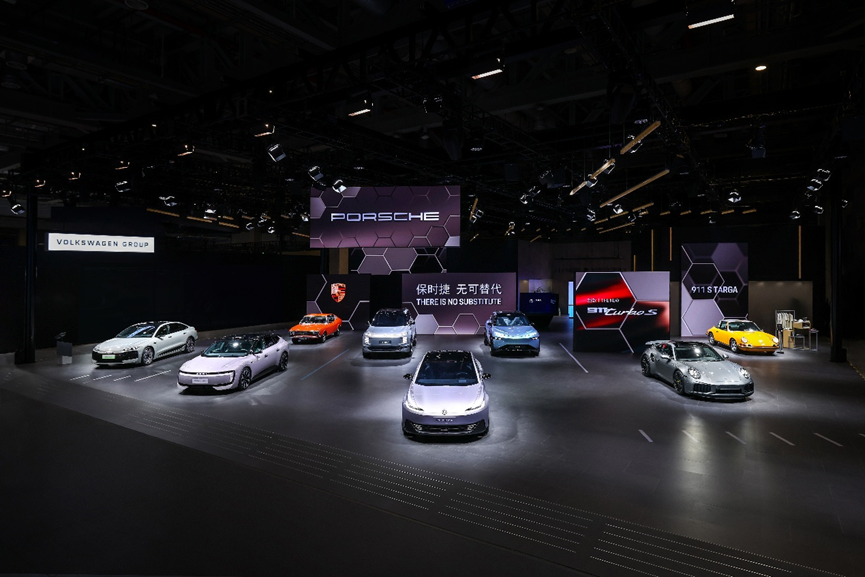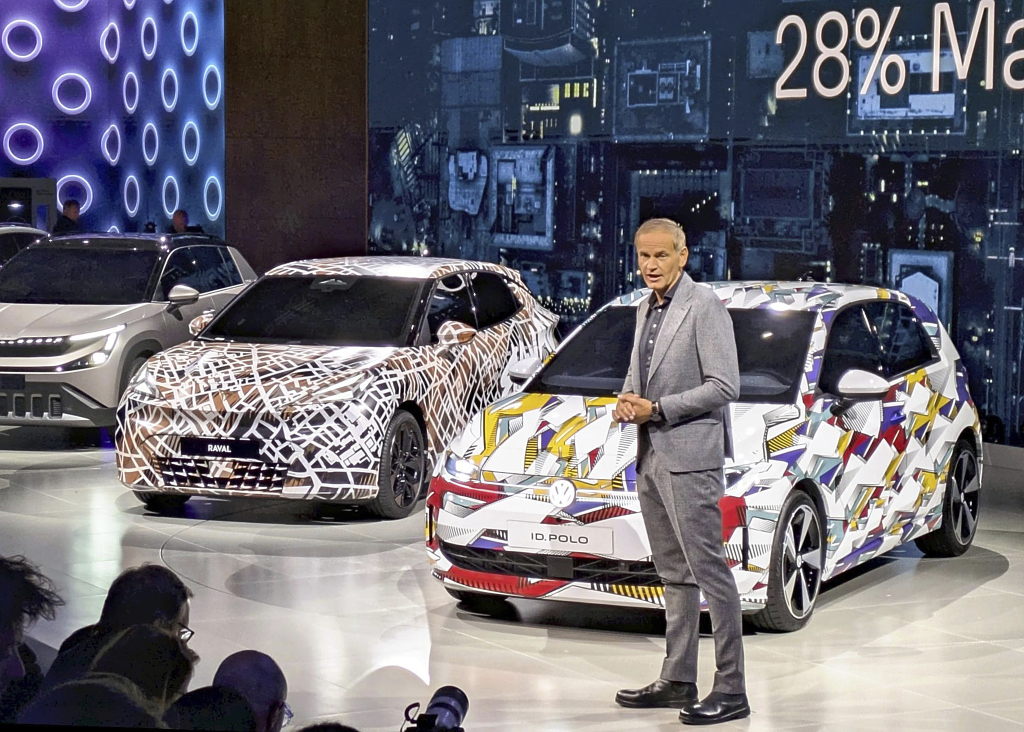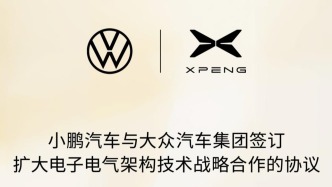
The event surrounding Volkswagen Group's plan to close two factories in Germany is still unfolding.
The suggestion made by Oliver Blume is unprecedented for Volkswagen Group, involving 25,000 employees. A layoff of this scale is almost impossible to achieve within the company.

Oliver Blume
Faced with internal transformation, weakening demand for pure electric vehicles in Germany and Europe, and fierce competition from domestic new energy vehicles in China, Blume is contemplating abolishing Volkswagen Group's thirty-year commitment to job security, breaking the company’s record of never closing factories in its 87-year history.
Blume told employees, "The automotive industry has undergone tremendous changes in just a few years."
The transition to electric vehicles is harsh for the German automotive industry. The sector has invested heavily in battery technology, while consumers have shifted towards hybrid vehicles, forcing companies to deal with rising costs.
Due to declining profits and market demand, major global automotive suppliers like Bosch, Continental, and ZF have cut tens of thousands of jobs. Volkswagen signed a job security agreement in 1994, which prevented significant layoffs and consequently resulted in shrinking profits.
Once the largest car manufacturer in the world, Volkswagen Group's current market value is only half that of BYD.
A Revolution
Industry observers say if Blume successfully closes one or more German factories, it would be considered “a revolution,” a groundbreaking move.
Ferdinand Dudenhöffer from Duisburg-Essen University stated, “Germany faces issues such as high costs, low efficiency, and government regulation. Volkswagen's problem is that it operates like a state-owned enterprise, making it difficult to change things.”
Chief Financial Officer Arno Antlitz informed employees that Volkswagen Group's annual sales in the European automotive market have shrunk by 13% compared to pre-pandemic levels, placing the company in a severe predicament.
This means that the number of vehicles sold by Volkswagen in the region has decreased by approximately 500,000, equivalent to the annual production output of two factories. Antlitz remarked, “This market no longer exists.”
However, Daniela Cavallo, the powerful union leader at Volkswagen, disagrees with this perspective.
She believes that the company's troubles stem from its leadership, stating at a meeting, “Volkswagen is in trouble because the management board has not done its job.” She considers it the leadership's failure to focus solely on pure electric solutions without simultaneously developing hybrid technology during the Diess era.
Volkswagen's board is not the only one struggling to negotiate with unions; there are a considerable number of employee representatives in the supervisory and management boards, who have the right to vote and can influence the formulation of corporate strategy. The Volkswagen union occupies half of the seats on the supervisory board and has strong allies in Lower Saxony, a region that holds 20% of the voting power and prioritizes employment.
Last year, the Volkswagen brand promised to cut costs and reduce expenditures by 10 billion euros by 2026. This program hinges on early retirement plans, wherein some employees could receive 85% of their full salary, along with voluntary redundancy packages, for which the automaker has allocated 900 million euros.
However, after failing to achieve a 3 billion euro savings target, executives are looking to take more direct action. On September 4, in Germany, Blume highlighted the high risks facing the Volkswagen brand, which relies on scale sales.
Lack of Policy Support for Electric Vehicles
Not only is the Volkswagen brand facing difficulties, but its competitors are also struggling with weak consumer demand for pure electric vehicles and rapid industry changes.
Renault CEO Luca de Meo described the industry as "extremely unstable and unpredictable," calling for broader cooperation among European automakers to weather the turbulent times, despite a breakdown in negotiations with Volkswagen this year over producing cheaper electric vehicles. Stellantis is also suffering, with weak performance in the US market leading to significant declines in profits and stock prices.
Like German automakers, French companies also face strong resistance from unions, making large-scale layoffs unfeasible.
Furthermore, the slowdown of charging infrastructure development, along with the cancellation of consumer subsidies by governments, including Germany, has led to a decline in European electric vehicle sales growth.
Many automakers are personally subsidizing consumer incentives, which has reduced profitability. Average profit margins are now lower than those of gasoline vehicles, partly due to the substantial investments required for technological transformation. For instance, Volkswagen is providing a 3,570 euro discount to German consumers purchasing its ID series electric vehicles, with similar offers available in other markets.
In the first half of 2024, the group reported an 11% decline in operating performance compared to the same period last year, with the operating profit margin dropping from 7.3% to 6.3%. The profit margin for the Volkswagen brand in the first half of 2024 was only 2.3%, while Volkswagen Group originally planned to increase the profit margin to 6.5% by 2026 through its 10 billion euro cost-cutting program.
HSBC's European automotive analyst Michael Tyndall stated, “The challenge lies in the fact that no single factor can address the demand issues for electric vehicles.”
According to data from the German Association of the Automotive Industry (VDA), Germany sold 360,000 electric vehicles in the first eight months of this year, representing a decline of over one fifth compared to the same period in 2023. The Volkswagen brand's situation in the Chinese market is also increasingly concerning. Volkswagen continues to lose market share in its most profitable regions, while local electric vehicle brands like BYD are planning to enter the European market.
Volkswagen Group opposes the EU's imposition of tariffs on Chinese cars entering the market, partly due to fears of retaliation, but also because some of its other brands, such as Cupra, produce vehicles in Chinese factories for subsequent return to Europe for sale. The group is reluctant to disclose the losses resulting from tariffs but acknowledges that the tariffs it pays are higher than those of many of its Chinese competitors.
Analysts and many investors support Volkswagen Group’s new cost-cutting plan.
Independent automotive analyst Matthias Schmidt remarked that the challenges facing the company are quite severe, and the union committee has to make concessions.
He said, “This union, especially Daniela Cavallo, is facing reality head-on.” He pointed out that Tesla led by Elon Musk and Chinese electric vehicle manufacturers have captured over 5% of the European market share in just four years.
The Union's Struggle
However, Cavallo is prepared to fight Blume.
She argues that labor costs are only a small part of Volkswagen Group's cost-saving efforts. The cash incentives provided to consumers of pure electric vehicles and the low sales of high-priced models have already cost the company “hundreds of millions of euros.”
She stated that closing the factories in Germany is an unbreachable red line and asserted, “Our factories are the driving force for the entire surrounding region.”
German Vice Chancellor Robert Habeck echoed this sentiment on September 3, stating that Volkswagen has a "major responsibility" toward Germany's historically renowned automotive industry and, as one of the pillars of Germany's future industry, also bears a social mission.
The crisis at Volkswagen Group has prompted discussions within the German government about implementing new tax reductions for electric vehicles, after the government terminated subsidies for electric vehicles at the end of last year.
Morgan Stanley analysts warned that to keep low-cost Chinese cars out of the European and American markets, automotive prices in Europe could remain high, potentially leading to electric vehicle penetration in developed markets being well below 20% by the end of the century.
Dudenhöffer from Duisburg-Essen University expressed doubt about whether the government and unions would accept Blume's proposal. The German metalworkers' union IG Metall stated on September 5 that it might be willing to consider reducing workers' hours, but cautioned that if the union compromised, the consequences would be untenable for Volkswagen Group.
Volkswagen has little time left. “We have a year, maybe two years, to turn things around. But we must make use of this time,” Antlitz said.


